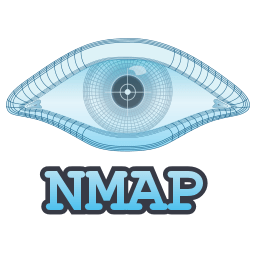Tag: Network
Using the Liquid Web Command Line Interface (LW CLI)
What is the Liquid Web Command Line Interface (LW CLI)?
This is the official command line interface for the Liquid Web API. CLI stands for the “command line interface” which is used for interacting with multiple Liquid Web services via the Liquid Web’s Public API.
Understanding Load Balancing for Web Servers
Websites and applications with a large amount of traffic will benefit from load balancing. We will dive into what it is, the methods of load balancing, its benefits, and its uses for load balancing.
How to Troubleshoot SMTP Errors: Part 2
In part one of How to Troubleshoot SMTP Errors, we reviewed email status codes, internal reasons for email issues, and troubleshooting steps to address those issues. In part two of this series, we will examine some of the external reasons for email issues.
How to Troubleshoot SMTP Errors: Part 1
What is SMTP?

The Simple Mail Transfer Protocol (SMTP) is a communication protocol used to transmit email between corresponding email servers. Using an email client like Mac Mail, Outlook, Thunderbird, or web clients like Gmail or Windows Live, SMTP can send messages to an email server. Although SMTP was initially designed as an email transport and delivery system, it later encompassed the email submission protocols that are now in use by both the Post Office Protocol (POP) and the Internet Message Access Protocol (IMAP). The above-noted email clients use these protocols to retrieve email from an email server. When this system fails, it provides the means to identify and resolve SMTP errors.
How to Investigate Server Load: Part 2
Introduction
In this second tutorial on server load, we outline the steps that should be taken when investigating where server load originates and what may be causing your server to become overloaded. As noted in Part 1 of our series, excessive use of any apps or services can typically cause load issues. Here are the four main areas of concern:
How to Investigate Server Load: Part 1
Introduction
In this two-part series, we outline the steps to take when investigating where server load originates or causing your server to become overloaded. When running a server that hosts multiple websites, high load issues often crop up. To find out how and why this occurs, read on.
How to Install and Configure Bashtop
What is Bashtop?
Bashtop is a command-line based resource monitor written in bash, which depicts usage and statistics for the CPU processor(s), RAM, hard disks, network sources, and other running processes. It also contains a customizable menu and a fully responsive terminal user interface.
How to Install and Configure Nmcli
What is nmcli?
nmcli stands for Network Management Command-Line Interface, and is a tool for managing the NetworkManager application and reporting on the status of the network. It can be utilized as a substitution for nm-applet or other similar graphical clients. nmcli is used to display, create, delete, edit, activate, deactivate network connections, and control and display network device status.
How to Install INXI on Ubuntu 18.04
INXI is one of the best tools that offer a straightforward and comprehensive method for obtaining a wealth of information about a server with a single command.
Using Nmap: Pro Tips and Tricks
Introduction

In this article, we will review the Nmap software program and multiple commands. Nmap is an open-source mainstream tool used by network administrators to scan ports and map networks. Nmap commands are primarily used to identify which ports certain software is running on our system. It is also used to discover available hosts and what services they are offering and detecting potential security risks. Using Nmap, you can check a single host or a complete network. In this tutorial, we will cover several basic as well as advanced Nmap commands in the “Pro Tips and Tricks” section of the article.
Our Sales and Support teams are available 24 hours by phone or e-mail to assist.

